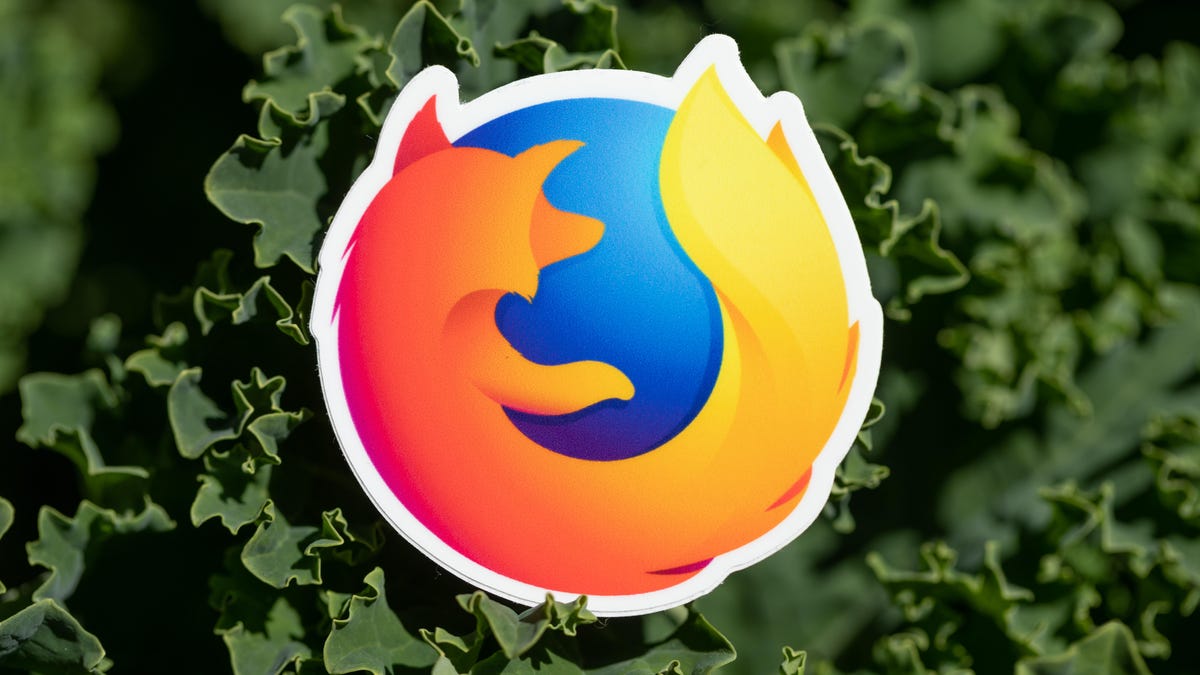Mozilla Firefox now stops websites, advertisers from tracking you
Browser makers are using privacy features to try to win us over.

Firefox lets you snub third-party cookies.
After more than a year ratcheting up its privacy protections, Firefox now blocks website cookies that can let advertisers and publishers track you across the web.
Cookies are small text files that websites can store in your browser -- either first-party cookies from the operator of the website or third-party cookies that can come along for the ride from advertising and analytics firms. Mozilla is blocking those third-party cookies under a Firefox feature called enhanced tracking protection it announced in 2018.
Privacy problems like data breaches and Facebook's massive Cambridge Analytica scandal affected millions of people. Controlling browser cookies doesn't fix everything, but it can help with one part of the privacy problem by making it harder for companies to track you from one website to another.
"People feel increasingly vulnerable," Mozilla said in a blog post. "We believe that in order to truly protect people, we need to establish a new standard that puts people's privacy first."
The moves mark an effort by browser makers to become more assertive even when it means overruling the instructions coded into websites. Years ago, advertising technology companies were instrumental in shooting down a technology called Do Not Track that could have offered consumers a way to explicitly tell websites they didn't want their web behavior monitored, but now browser makers are moving ahead on their own.
Browser tracker blocking becomes standard
Mozilla started letting people block tracking in 2017, but it isn't the first to enable the feature by default. Apple's Safari has blocked third-party cookies for far longer and more recently added a feature called intelligent tracking prevention that goes even further. Rival browser Brave also blocks third-party cookies. Even Google's dominant Chrome is starting to rein in cookies.
Newly installed versions of Firefox will block trackers by default, Mozilla said. If you already have it installed, Firefox will enable blocking in the coming months automatically. You can disable the feature and opt for different levels of blocking. Blocking can sometimes cause problems with websites.
Blocking cookies can lead to another tracking strategy called fingerprinting. There, tracking scripts embedded in websites gauge the features and configuration of your browser, a collection of data that can uniquely identify you. To thwart this, browser makers are cutting down on factors that can be used in fingerprinting and blocking identified fingerprinting scripts.
'Privacy is the new browser war'
Some browser makers see privacy as way to stand out against Chrome.
"Privacy is the new browser war," John Wilander, a Safari team engineer who helped create Apple's intelligent tracking prevention technology, tweeted back in 2017. He saw Firefox and potentially Microsoft's Edge as allies. On Tuesday, he tweeted that Mozilla's decision to block cross-site tracking in Firefox made it a "day to celebrate."
Mozilla engineer Marcos Cáceres echoed the thought a few days ago in a tweet taking aim at Google and Facebook . "There's massive browser war coming around user privacy, tracking, and targeted ads (Google, FB, adtech vs Apple, Mozilla, Brave and hopefully Microsoft)," Cáceres tweeted. "It's going to last a few years and it's going to get really ugly."
Facebook and Google are the largest powers in internet advertising. At developer-focused shows in recent months, they each touted privacy as a top priority.
"The future is private," Facebook Chief Executive Mark Zuckerberg declared in April.
"Privacy cannot be a luxury good offered only to people who can afford to buy premium products and services," Google CEO Sundar Pichai said in a May op-ed. That stance contrasts with Apple's criticism that free services turn your personal data into a product sold to advertisers.
Facebook and Google didn't respond to a request for comment.
First published June 4, 6 a.m. PT.
Update 8:22 a.m. PT: adds comment from Apple developer on cross-tracking .

